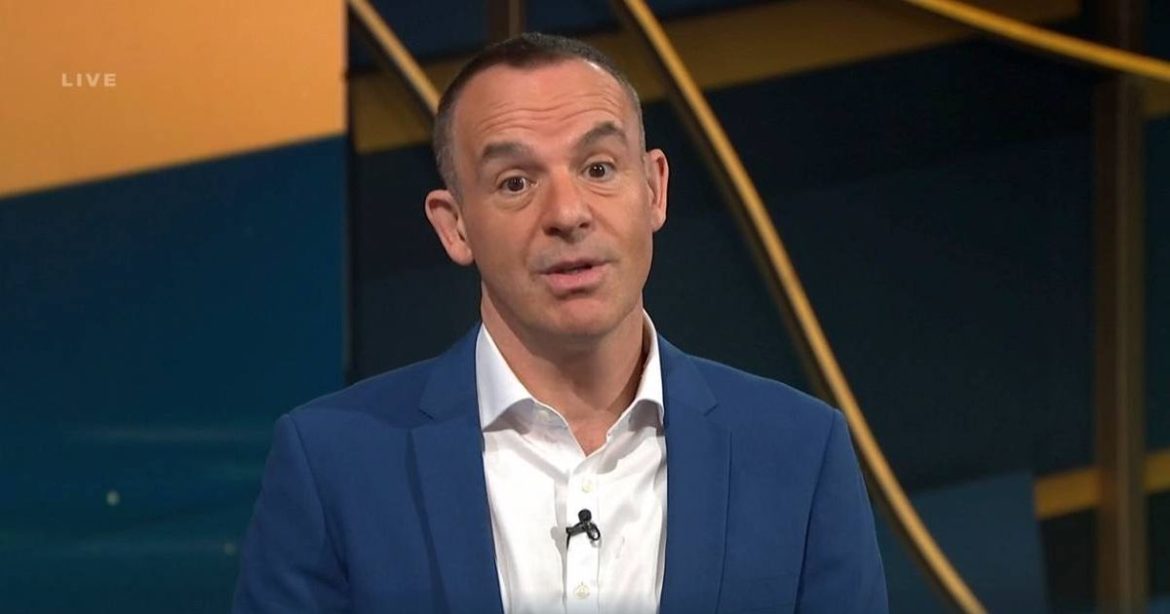He has shared his top tips for saving money on energy bills
Martin Lewis, the personal finance expert, has warned about a ‘demon appliance’ that is the biggest energy guzzler in the home and should be avoided at all costs.
During his BBC Radio 5 podcast, Mr Lewis offered advice as energy bills skyrocket with the onset of colder weather.
This week, it was revealed that households are entering winter with a staggering debt of £780 million to their energy suppliers, the highest level in eight years, according to a Uswitch survey.
READ MORE: Martin Lewis’ Money Saving Expert gives verdict on whether to leave heating on all dayREAD MORE: Martin Lewis issues urgent advice to every person using a smartphone
The comparison site reported that the number of households in debt to their provider has surged by 46% from 2.4 million last year to 3.5 million this year, reports Manchester Evening News.
Mr Lewis pinpointed the tumble dryer as an appliance to use sparingly due to its high running cost of £1 per load.
He said: “Do you know what the real ‘demon appliance’ is in most people’s houses – the one that you don’t want to use because it’s really expensive.
“Tumble dryers. You’re typically paying up to a quid per load so dry your clothes on an airer outside, to shorten the amount of time you’re using your tumble dryer, or avoid using it completely.
“Those who have dehumidifiers can take some of the moisture out of the air. It’s less wattage than a tumble dryer, so it can be more cost-effective.”
A live listener named Rob noticed that his flat had become damp since he started drying his laundry indoors. He queried: “If I were to buy a dehumidifier, would it be cheaper than using the heating to keep the place dry?”
Martin responded: “Dehumidifiers take water out of the air rather than use the heating and they’re much lower wattage appliances than standard heating. So if the dehumidifier works for you, it will definitely have lower electricity bills.”
A key problem is that radiators often heat spaces where warmth quickly escapes outdoors. During a previous BBC Podcast appearance, Mr Lewis suggested households should think about installing reflective panels behind radiators – redirecting warmth back into rooms instead of allowing it to seep through walls.
He explained: “A tip for you reflective panels behind radiators. Sheets of reflective material can be placed behind radiators. Crucially, this is on external wall radiators, so the heat doesn’t escape. If you don’t want to pay for those, then tin foil can work, although it doesn’t work quite as well.”
At present, a 4 metre long roll of the radiator heat reflector foil is available at Screwfix for £6.38 with a 15 per cent discount. He offered additional radiator advice too.
He explained: “If you’ve got radiators in rooms that you’re not using, go and turn them off before you turn the heating on so you’re not wasting cash overheating empty spaces.
“Changing the flow rate on your boiler can cut gas bill by over 9% and you won’t notice the change.”
Mr Lewis also warned that households should steer clear of using a ‘demon appliance’ wherever practical. He said: “Other general tips included: “Check your TV’s on a low energy setting too and walk around your house.
“Be a draft detector – what drafts can you spot as you walk around your house? And then try, if you can, to seal them up. “
The Uswitch survey revealed the typical household debt figure of £223 represents a 29% increase from last year’s £173. The average bill payer held £128 in credit last year, but this has now fallen to £98 – dropping below £100 for the first time since the energy crisis started.
Families typically pay a set monthly amount that exceeds their summer usage to accumulate credit for covering costlier winter months. Yet more than two million low-income families – and 10 million homes nationwide – have no energy credit saved to handle higher winter bills.
Among the 55% of families who maintain a credit balance, this has decreased marginally from last autumn’s typical £222 to the present £214. Latest data from regulator Ofgem indicated that customers owed energy firms over £4 billion, representing an increase of more than £750 million compared to the previous year.
Ofgem’s debt figure represents the total amount customers owe their suppliers for unpaid bills, while Uswitch measures the current balance of a household’s energy account. It has been revealed that one in six homes (16%) with a household income of less than £20,000 a year are already in debt to their energy supplier before winter, with indebted homes owing an average of £60.
Ben Gallizzi, energy spokesman at Uswitch, said: “It’s deeply concerning to see that household energy debt has soared to an eight-year high, which suggests that many homes may face a bill shock soon as direct debit levels are updated.
“He further explained: “The cost of living squeeze and the end of many government support schemes means that households are getting less help than they used to, causing many to fall behind. “Gallizzi also offered advice for the upcoming winter months: “Households use more energy over the winter, so for those paying via direct debit it’s ideal to have a cushion of about two months’ worth of energy credit at this point in the year.
“He concluded by urging those struggling to reach out: “If your energy account is going into debt, or you are behind on your bill payments, speak to your supplier as soon as possible. “.
For all the latest news, visit the Belfast Live homepage here and sign up to our daily newsletter here
#Martin #Lewis #turn #demon #appliance #worst #soaring #bills #home

